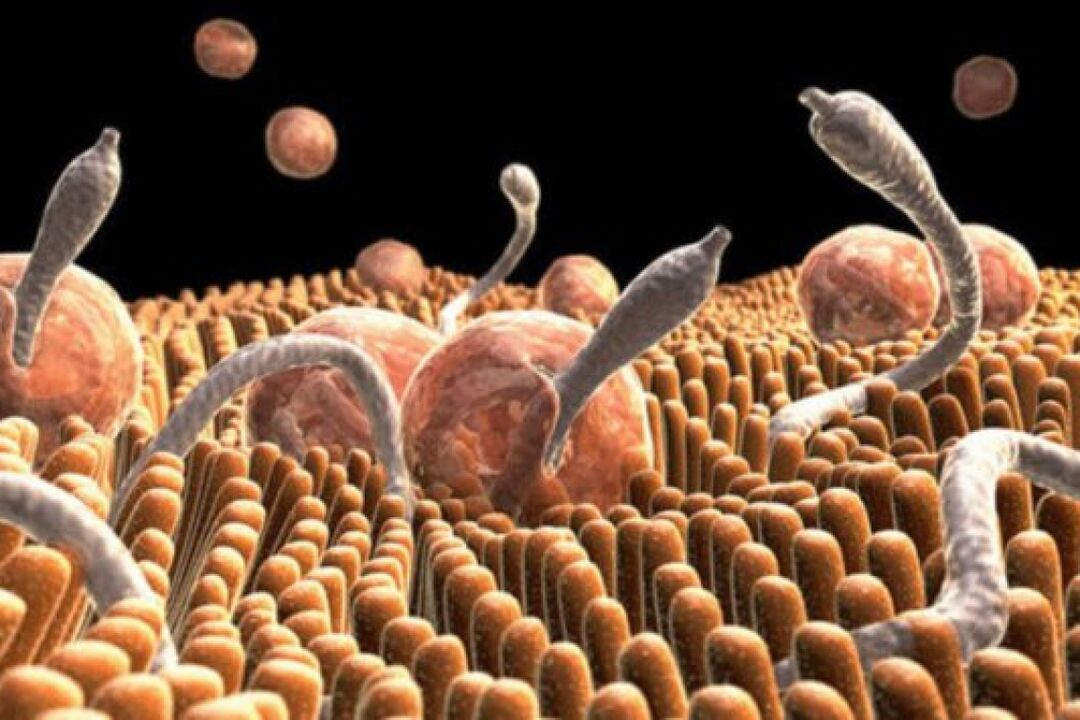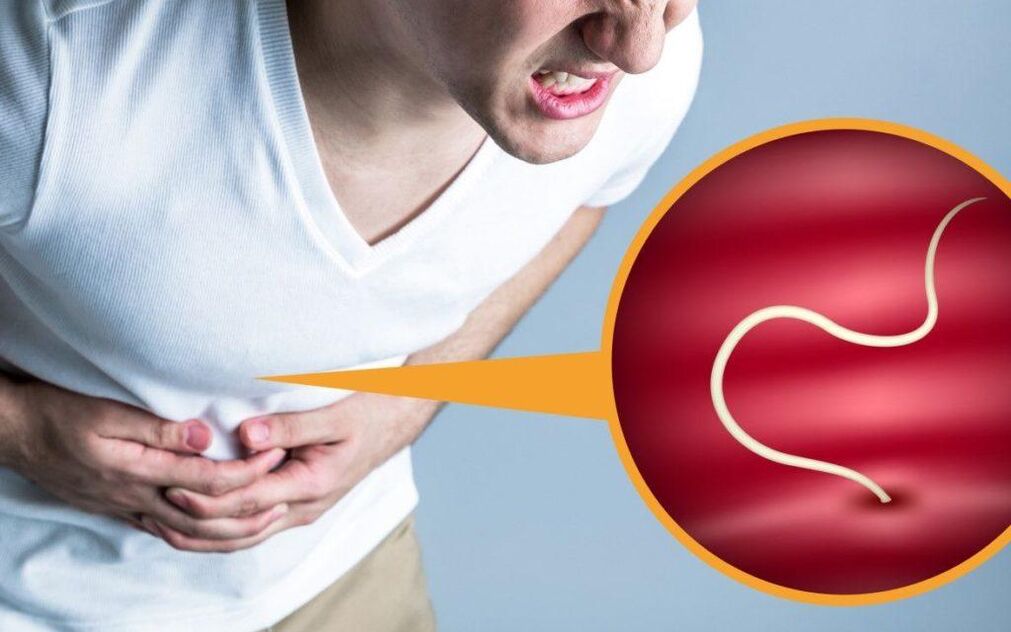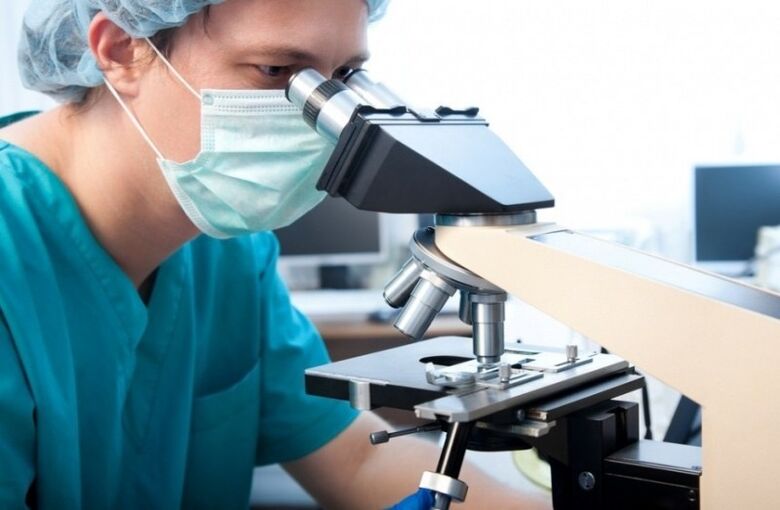
Parasites in the human body arise from the environment and are very active there. Toxic substances generated by the activities of these creatures poison the human body and cause serious damage to health. Symptoms of the invasion of parasites into the human body can be various unpleasant signs that require urgent treatment. If treatment for the invasion was started in a timely manner, the consequences of the disease will be minimized.
What are parasites in the human body?
Parasites in the human body are invasions that ensure their existence at the expense of the host. Parasites live in the human body, carry out their vital activity, feed on human food and energy, and often on human cells and tissues. Recent studies show that the probability of the presence of parasites in any organism is 85%. Some scientists add another 10% to that number.

Dr. Ross Andersen made a statement that parasite infestation is the most common undiagnosed disease in the world. He admits that this is a very bold statement, but it is based on analysis of data from the medical histories of more than 20, 000 patients and on years of professional experience of more than 20 years.
By sampling feces for analysis, it can be determined whether parasites are actually present in the human body. This is the traditional and most common diagnostic method. However, it is extremely informative and unreliable because the parasite can only be detected when the lab technician sees its larvae through a microscope.
Parasites in the human body can live almost anywhere. There are no barriers for them. They parasitize not only in the intestines, but also in the liver, joints and muscles, in the blood, in the brain and in the eyes. Science knows more than 100 types of parasites that live in the human body, from invisible amoebas to meter-long worms.
But worms don't always lay many eggs, so a standard test may not be able to detect the parasite. Some experts recommend doing tests three times, but this does not guarantee a reliable result. It is assumed that at least 8 or even 10 fecal examinations must be carried out to detect parasites.
At the same time, it was found that the most common parasites that inhabit the human intestine are precisely helminths. They all have different shapes, they can look like a sheet of wood, like a woman's bracelet, like a pencil sharpened on both sides.

However, they have one thing in common - they pursue the goal of destroying their master and squeezing the maximum benefit from his body. In addition, all parasites are very productive and viable.
It is a mistake to believe that the helminth invasion is purely a childhood disease. Very often adults suffer from it, and most people do not even suspect such an uncomfortable and dangerous neighborhood.
Types of parasites in the human body
Parasites in the human body. After a person becomes infected with any kind of parasitic microorganism, a person may not even be aware of this problem. Only a few symptoms can signal the presence of pathogenic organisms: general malaise, increase or decrease in body weight.
Signs of invasions of the body appear only in those cases when the number of microbes reaches large values, and the general and local immunity is significantly reduced. Numerous types of worms are distinguished by the fact that they cause great harm to human health.
Types of parasites in the human body:
- Roundworms:are microscopic. The best-known representatives of this group are Trichinella, Ascaris, pinworm, whipworm;
- Trematodes:Group of flatworms. They parasitize inside and outside the body. These include the types of leeches, leeches;
- Cestodes:Tapeworms, tapeworms, echinococci, are tapeworms. You don't have a digestive system;
- prickly: These are small worms with a flat elongated body completely covered with thorns;
- with scraper:a person becomes infected through infected fish, birds, mammals. Microorganisms that parasitize under the skin. This includes the roundworm of the Risht. It is also called the Guinea worm. The risk of invasion is very high;
- amoeba: unicellular microscopic helminth. It has an irregular, constantly changing shape. It settles in the blood vessels and provokes pathologies of the heart and vascular system, the development of a stroke. Is the causative agent of amebiosis;
The liver is affected by various types of lamblia, amoeba, schistosomes, roundworms, echinococci, which leads to disruption of many processes in the body. The liver and other organs are defenseless against an army of virulent microorganisms.
Ways of the entry of parasites into the human body
Parasites in the human body. Parasitic diseases, helminthic infestations are caused by pathogens that enter the human body in various ways. Most often, infection occurs when a helminth (parasite) passes through the mouth (contamination of food and water with soil, eggs, and cysts from pathogens) through dirty hands.
Insects (flies, cockroaches), rodents and larger animals (cats, dogs) can transmit pathogens causing parasitic infections and protozoal diseases through infected household items.
Parasitic pathogens and their larvae can live in almost all organs and tissues - in the lumen of the colon and small intestine, the rectum, the biliary and urinary tract, in the bronchopulmonary system, in the blood, brain and liver tissue, in the muscle tissue and in the eyes. . .
In children's collectives, helminth eggs are transmitted through toys and dirty hands. Some parasites can enter the host's body through contact through the skin (even intact) and the mucous membranes, less often through inhalation.
In the course of evolution, many parasites have developed special mechanisms for their spread in order to maintain their species (for example a complex development cycle with host change, formation of cysts and protective membranes).
The parasites have lost some organs (vision, digestive system). At the same time, the reproductive system of the parasites has achieved an amazing development (hermaphroditism, a large number of eggs secreted by an individual).
Diagnosing parasitic diseases
Parasites in the human body. An important topic is the diagnosis and detection of parasites for their timely treatment and elimination from the body. Diagnosis and identification of many types of helminthiasis is based on the detection of parasites, their eggs in the feces, and the use of other techniques.

Repeated examinations of the faeces are often required to make a safe diagnosis of parasitosis. In enterobiasis, the parasite's eggs are examined by scraping the perianal folds.
ELISA (Enzyme-Linked Immunosorbent Assay) enables the pathogen to be identified by examining antibodies in the blood. A general analysis for all parasitoses and helminth invasions shows an increase in the proportion of eosinophils in the blood, which indicates an allergy, often signs of anemia from iron deficiency or other etiology (macrocytic, B12 deficiency).
Prolonged massive parasite infestation can lead to electrolyte shifts and a lack of minerals (calcium, phosphorus). The biochemical investigation of markers for liver damage, transaminases, bilirubin is often used when helminthiasis is suspected.
Ultrasound, endoscopy of the stomach and duodenum, CT - examination - can be used in the diagnosis of certain parasitic diseases (echinococcosis, giardiasis). With trichinosis, a biopsy of muscle tissue and skin is mandatory (detection of the parasite and confirmation of the diagnosis).
Symptoms of the presence of parasites in the human body
Parasites in the human body are organisms that live on their host. They lead a parallel life in our body and feed on our energy, our cells and our food. It's also no secret that they throw their waste products straight into our bodies and die there.
The symptoms of parasites in the human body are very diverse. Their insidiousness is that they all manifest themselves in such a way that it is almost impossible to diagnose in the blink of an eye. Whatever worms a person has, symptoms of helminthiasis will be very similar.
In addition, symptoms characteristic of a lack of nutrients appear, as parasites are known to suck up the most useful nutrients from food, including vitamins and minerals.
Symptoms of parasites in the human body:
- constant fatigue, decreased performance, nervousness, irritability;
- Drowsiness or, conversely, insomnia;
- problematic skin and hair;
- cosmetic defects in the form of nail peeling, cracked heels, various spots on the skin, early wrinkles on the face;
- Abdominal pain, gas (gas and gas);
- Stool disorders (more often in the form of diarrhea, but constipation is also possible);
- significant changes in weight over a relatively short period of time;
- Bulimia (prolonged increase in appetite) or, on the contrary, a deterioration in appetite;
- Hypovitaminosis (lack of vitamins);
- Anemia, low hemoglobin; Granulomas, tumors;
- Headache, joint pain, muscle pain;
- Grinding of teeth in sleep, itching in the anus;
- Immunity disorders, frequent colds;
- increased frequency of allergic reactions in the form of asthma, neurodermatitis, urticaria.
Symptoms of parasites in the liver in humans
Parasites in the liver can be dumb for a long time. It is important for a sick person to timely pay attention to some signs and symptoms that may indicate the presence of parasites.
Most often, parasites in the liver cause the following symptoms:
- Weight loss, fever, leukocytosis, pain (or discomfort) in the right hypochondrium. Sometimes the pain radiates into the shoulder. This clinical picture is typical of liver amebiasis; organic and functional changes in the liver that usually occur with giardiasis;
- Nervousness and irritation. This is one of the most common symptoms of parasitic infection not just of the liver but of the entire body. The waste products from parasites are toxic to the human nervous system. According to medical observations, after the removal of parasites, patients become more patient and calmer;
- Sleep disorder. The peak of active liver activity occurs around 2-3 a. m. In the presence of parasites, patients can wake up almost every night at this time. Sometimes helminths can leak through the anus, which also leads to the patient's sleep disorder;
- Other symptoms associated with a parasitic liver infection include: bad breath and bad taste in the mouth, constant hunger, acne and acne, diabetes mellitus, headaches, and migraines.
Treatment of parasites in the human body
Medical treatment of parasites in the human body
The appointment and control of drug therapy is carried out exclusively by an infectious disease specialist or parasitologist. In addition to the use of drugs for the successful treatment of parasitic pathologies, methods of alternative medicine are used.
For the drug therapy of helminthiasis they use well-known and newest antihelminthics.
Treatment of parasites in the human body using folk methods
Parasites in the human body. To get rid of parasites in the human body with folk remedies does not take a single day.

If the method is strong, the worm will die on the first day. But there are also eggs that are not suitable for disposal the first time.
How to get rid of parasites at home - recipes:
- Cleansing the sauerkraut brine in the body will be effective: drink it to half a cup 3 r. A day. before a meal. He is able to rid the liver of parasites;
- even flowers can cure a person: fill a bottle with purple inflorescences and pour vodka into it to the brim. Stand for 10 days and take 1 teaspoon. before every meal. Reviews of this popular method are commendable;
- You can get rid of parasites in adults with mushrooms: for this, tinctures obtained at home are used. Agaricus and chanterelles are effective against worms. Insist on a glass of chopped agaricus in 0. 5 liters of vodka for 14 days. Drink 1 tbsp. l. 3 r. / D. Before eating. To make cleaning more effective, drink the product with an infusion of marigold, currant and yarrow. The treatment lasts a month;
- It is allowed to use folk remedies for parasite recipes from plant seeds: it is good to remove cumin and dill seeds with flour. The mixture is eaten in 1 tsp. and washed off with water. In this way, removing parasites for a long time (6 months), but not without result.
The influence of parasites on the body
Parasites in the human body disrupt the functioning of organs, cause inflammatory processes in them and destroy tissues. In the course of their life, parasites often produce substances that are toxic for humans, which lead to a gradual poisoning of the body.
Parasites in the gut use nutrients from food for their growth and development. Because of this, the human body begins to experience a lack of them. This is especially dangerous for children, as their growth slows down and physical and mental development is impaired.
Parasites adapt well, can live in an organism for years and their eggs and larvae are very resistant to the environment.
In the digestive organs, parasites can secrete special substances for their protection, which inactivate enzymes and disrupt the process of food digestion. Therefore, in a patient with parasites in the intestines, symptoms often resemble diseases of the digestive system.
Does a person need to remove parasites from the body?
As for the cleaning of organisms from parasites, there is no point in doing it just because it has become fashionable and popular. If a person has no symptoms of invasion, but digestive disorders are only observed regularly, then it is more advisable to simply switch to a gentler diet and adjust your lifestyle.

Nature itself has arranged that the human intestine is a "refuge" for bacteria. Without them, humans simply could not exist. Even such dangerous microorganisms as Staphylococcus aureus and Candida are needed by humans because they are part of the food chain andAre food for beneficial bacteria.
When a person is healthy, his body functions as a well-coordinated system and nothing will interfere with its function. A strong immune system prevents parasites from harming the body.
Against the background of a weakening of one's own defenses, however, the work of the internal ecosystem of the body is disrupted in the case of an irrational diet through the intake of medication and parasites can penetrate and cause damage. In this case, you should remove them by all available means. It is necessary to cleanse not only the liver, but the entire body as a whole.






























